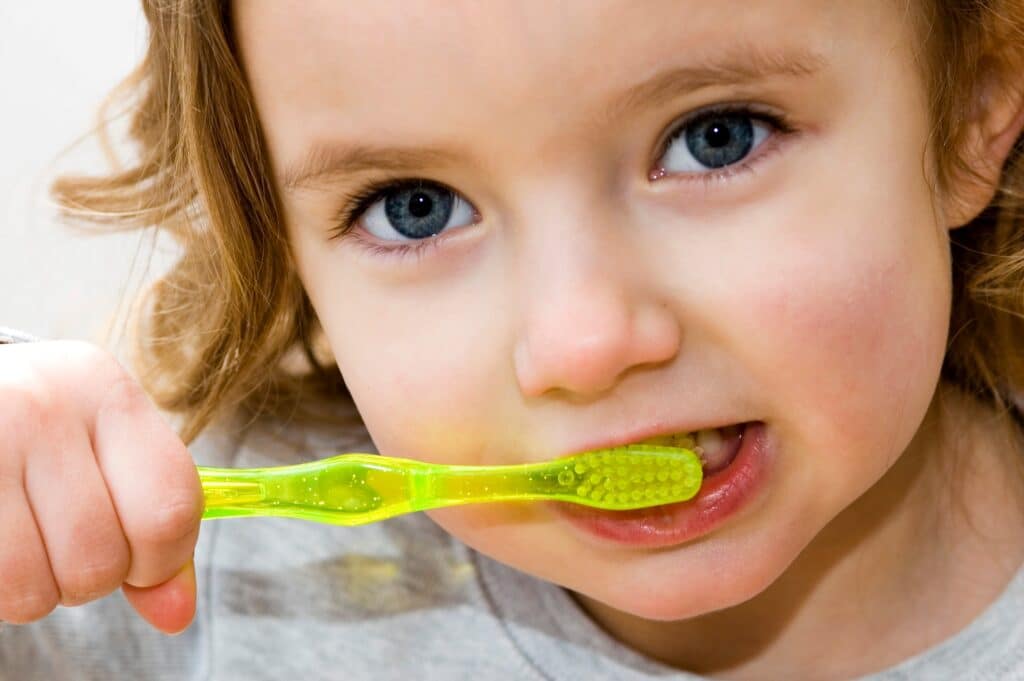
If your child’s dentist told you that they need a dental crown, you may have some questions. Why are they getting a crown instead of a filling? Will they experience any pain during or after the procedure? How can I help them care for their dental crown? This blog will cover everything you need to know about pediatric dental crowns in order to help ease any anxiety about the process for both you and your child.
#1. Why Your Child May Need A Dental Crown
Dental crowns are used to correct teeth that are damaged or weak. Crowns are more versatile than dental fillings because they cover the whole tooth, not just a small part. Your child may need a crown if their tooth is cracked, worn down, or broken to the point where a filling would not be sufficient. They’re also used to protect a tooth after a pulpotomy, which is a root canal for baby teeth.
#2. How to Prevent the Need For Dental Crowns
To prevent the chances your child will need a crown, you need to make sure they take good care of their teeth. Prevent tooth decay with good oral hygiene, including regular cleanings and exams from the dentist. Protect your child’s teeth from trauma by having them wear a mouthguard when playing sports.
#3. What Dental Crowns Are Made Of
Dental crowns can be made of a variety of different materials, such as resin, porcelain, and metal. There are many different types of crowns, and your child’s dentist will determine what material would be best for your child by taking into consideration their individual oral health needs.
#4. Types of Dental Crowns
- Metal crowns: These crowns, made from gold, chromium, palladium, or nickel, are the most durable type of dental crown. They require less enamel removal than other types. Despite their benefits, many people don’t like metal crowns because of the metallic color, so they’re best for out-of-sight back molars or baby teeth that will fall out within a few years. These are common for pediatric dental patients.
- Mixed-material crowns: Dentists can create crowns made of more than one material, including porcelain fused to metal or ceramic.
- All-ceramic or porcelain crowns: If your child is allergic to certain types of metal, these crowns may be a good solution for them.
- All-resin crowns: These are less expensive than other types of crowns, but are more likely to break. They are usually used temporarily since they only last a few years.
#5. The Dental Crown Procedure

Most pediatric crowns can be placed in one visit. During the procedure, your child’s dentist will prepare their tooth by shaving down some of the natural enamel to make space for the crown. They may also build up parts of the tooth with a filling material.
Next, your child’s dentist will check the fit and shape of the crown, then place it on the tooth. The crown is bonded to the tooth with strong dental cement.
Because the dentist uses numbing jelly and an aesthetic injection, your child shouldn’t feel any pain during the procedure. However, after the feeling in their mouth returns, they may experience some soreness or tenderness for the next few days. This is completely normal, and you can give them pediatric pain medication like acetaminophen and ibuprofen to ease any discomfort.
#6. How to Decrease Anxiety
Your child may feel anxiety or apprehension about the procedure. Luckily, there are ways to help them feel more comfortable.
Before their appointment, explain to them what will happen during the procedure. Help them understand that they will be numb, so they shouldn’t feel anything. Invite your child to ask their dentist any questions they may have about the process.
Some dentists offer sedation during the procedure to help your child feel calm. You can choose to have them use nitrous oxide, or laughing gas, which will help your child relax as they inhale it.
#7. How To Care for Dental Crowns

Dental crowns require much of the same care as natural teeth. Help your child remember to brush and floss regularly, taking extra care to thoroughly clean the gums around the bottom edge of the crown. You should also remind them to avoid very hard or sticky foods, since these can damage dental crowns.
With a little care and precaution, your child’s crown will last as long as it needs to.
Dental Crowns by Eric Felt DDS
Whatever your child’s dental needs are, we can help! In addition to dental crowns, we offer a number of pediatric dental services, including fluoride treatments, fillings, and professional cleanings. Schedule an appointment for your child today!


